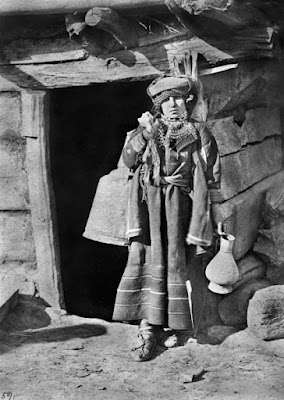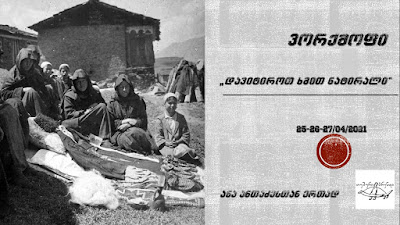„არჴამინ“ -„Arqhamin“: Taboo against the Repetition of lamenting Songs
Picture by Dato Simonia. The Tushetian word „არჴამინ“ -„Arqhamin“ can be translated as „prohibition“. It refers to the constraint imposed by social custom or as a protective measure. The word is although also used specifically as a taboo against the repetition of the ritually enacted "Lament in Voice" song. It was inhibited to memorize and reproduce the singing, that was performed in the context of the death ritual. The taboo of „Arqhamin“ regulated the encounterings with the "extraordinary". The once performed lament, that the "Lamentor in Voice" opened the doors to the dead with, ought to be unique to the moment, and never be repeated, 1 neither in a different setting nor at a different time, neither by the same nor by another lamentor. 2 The Tushetian folklorist Eter Tataraidze understands "Arqhamin" as a gesture of awe towards death: „To not remember [the laments], out of awe towards death, that is Arqhamin“ 3...






